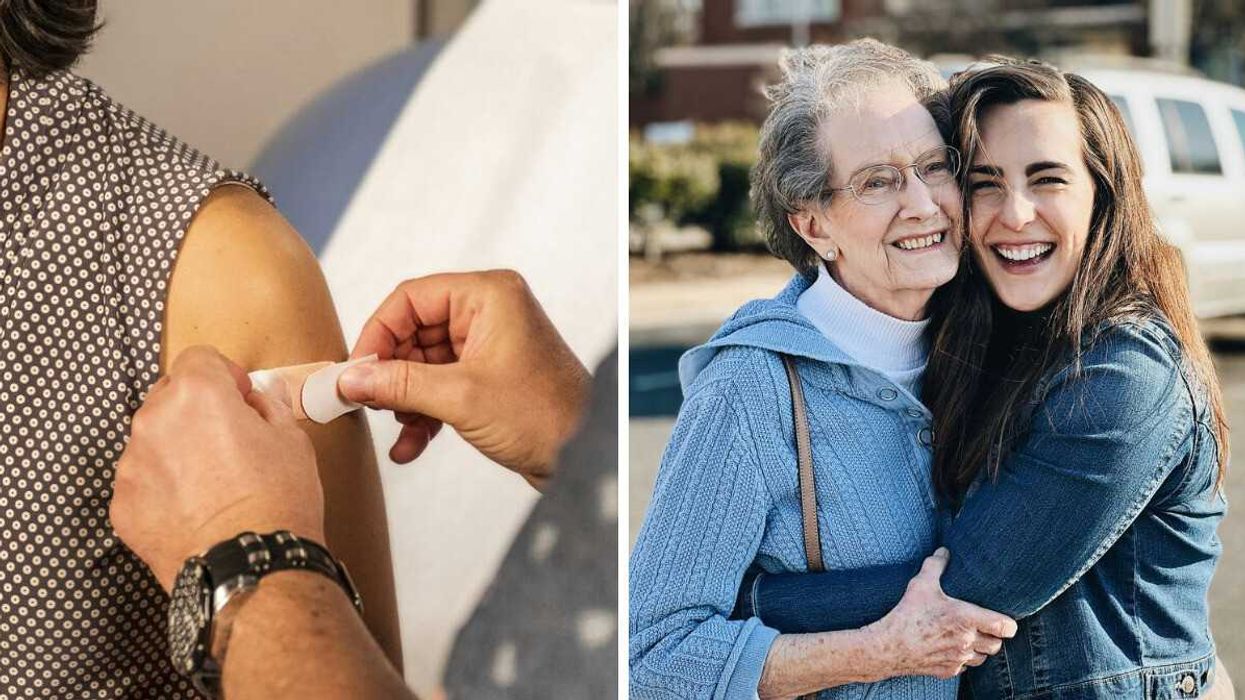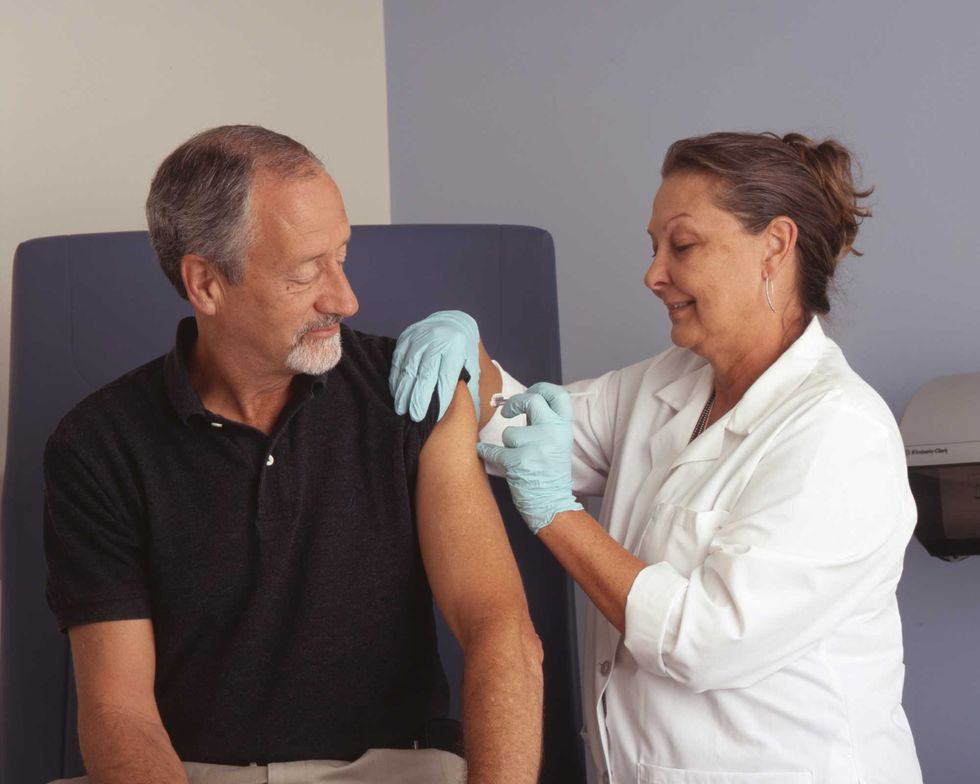This respiratory nurse explains why Canadians shouldn't skip the pneumococcal vaccine
"Being well-informed empowers you to make the best decisions for your health."

A man placing a bandage on a woman's arm. Right: Two women hugging each other and smiling.
Making a top-five list is usually cause for celebration. But when the list is "reasons Canadians are hospitalized," staying off it is the real win. Thankfully, in the case of pneumonia (fourth on the Canadian Institute for Health Information's "Top 5 reasons for hospitalization in Canada in 2023–2024"), there's something you can do.
While pneumonia has numerous causes, pneumococcal pneumonia remains one of the leading causes of hospitalization among adults over 50 in Canada. However, the risk can be reduced with the use of available vaccines, which can help prevent respiratory diseases that are otherwise preventable.
So, why aren't Canadians getting it? Despite the National Immunization Strategy target for 80% of Canadians aged 65 and older to be vaccinated by 2025, only 54% have actually received a pneumococcal vaccine.
Narcity spoke with Laura Bifolchi, Registered Nurse, Certified Respiratory Educator and Senior Manager of the Person-centred Care & Programs Team at the Lung Health Foundation, to understand why this gap exists and what Canadians can do to reduce their risk of being hospitalized for pneumonia.
This interview has been condensed and edited for clarity.
"Pneumococcal disease is an acute and sometimes serious infection that spreads through saliva or mucus when an infected person coughs, sneezes, talks, or shares close contact with others," she said.
According to Bifolchi, early pneumococcal pneumonia can start with mild symptoms such as fever and malaise, which can progress to shortness of breath, chest pain, fatigue and — in older adults — confusion. If you're over 65, have a chronic condition or one that weakens your immune system, the risks go up.
"Vaccination is one of the best ways to help protect yourself," she said. "[It] can help to protect you from getting a serious illness and the complications that can come with it."

Pneumococcal vaccination is available to Canadian adults 18 and older with certain risk conditions. Adults 65 and older are particularly at risk due to age and should be encouraged to check it out.
When asked why so few Canadians have received a pneumococcal vaccine, Bifolchi explained that there are several reasons.
"Awareness is a big factor," she said. "A lot of people don't realize how serious pneumococcal disease can be or that vaccines are available to help decrease the effects of it. That's why conversations with your healthcare provider — whether it's your doctor, nurse, or pharmacist — are so important.
"Now that a pneumococcal conjugate vaccine (PCV) is publicly funded across Canada, there are less financial barriers, but we still need to keep the conversation going and make vaccination a tool for healthy aging."
Bifolchi knows firsthand the impact of respiratory illnesses on patients and their families: "As a Certified Respiratory Educator (CRE) and Registered Nurse, I work closely with individuals living with chronic lung conditions every day and I see how much respiratory infections like pneumococcal disease can disrupt lives, leading to serious illness and hospital admissions.
"Immunization—along with healthy eating, regular exercise, adequate sleep, stress management, and taking prescribed inhaled medications—are all essential components of living well and maintaining quality of life with a chronic respiratory condition."

Health authorities, including Canada's National Advisory Committee on Immunization, recommend pneumococcal vaccination for eligible adults. For those nervous or unsure about getting it, Bifolchi points to education as the first step.
"It's completely normal to have questions—that's a sign you're taking a thoughtful approach to your health. I recommend starting by talking with your healthcare provider.
"Ask about the risks of diseases like pneumococcal pneumonia and how they might affect your health. You can also discuss the safety and effectiveness of the vaccines you're considering. Being well-informed empowers you to make the best decisions for your health."
To learn more about pneumococcal vaccination, who's eligible, and how to stay up to date on vaccines in your area, talk to your healthcare provider or visit your province's public health website.
The information in this article is not intended and should not be construed as medical advice. Consult your health care provider before making any health care decisions or for guidance about a specific medical condition.